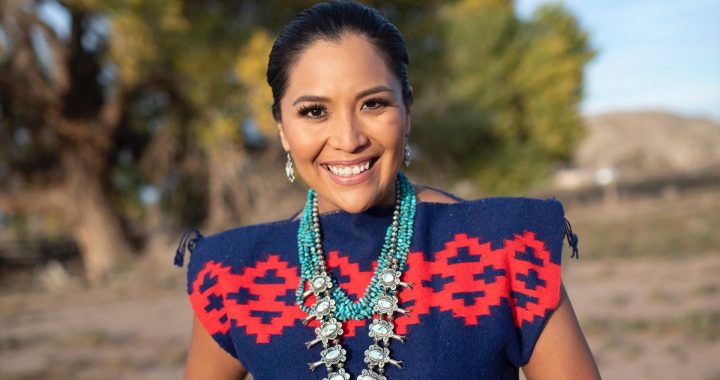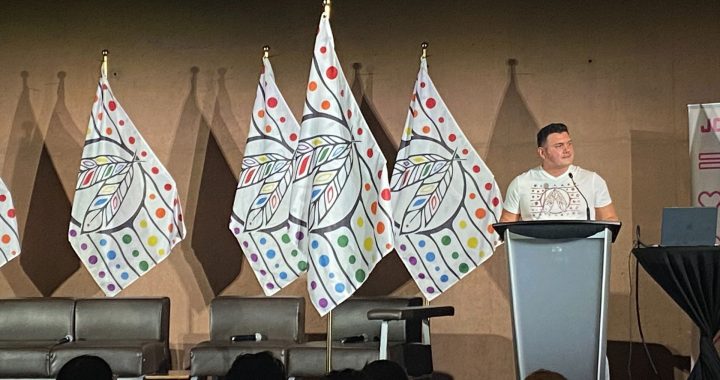By Jorge Barrera
APTN National News
Iran is using a group of Manitoba First Nations leaders as “pawns” to distract from its own “abhorrent record” on human rights, said a spokesperson for Foreign Affairs Minister John Baird.
A senior diplomat in Iran’s Ottawa embassy met Monday with former Roseau River First Nation chief Terry Nelson and two Dakota chiefs Monday to discuss a possible trip to Tehran.
The diplomat, Kambiz Sheikh-Hassani, the charge d’affaires at the Iranian embassy, told the chiefs that officials were “working very hard” to bring the group to Tehran.
Nelson was accompanied in Monday’s meeting by Canupawakpa Dakota Nation Chief Frank Brown, Dakota Plains Wahpeton First Nation Chief Orville Smoke and former Sioux Valley First Nation chief Ken Whitecloud.
Baird’s spokesman Joseph Lavoie said in an emailed statement that Iran was exploiting “tragedy” and playing a “sad game” with the First Nations leaders.
“The Iranian regime is now attempting to exploit tragedy and feign concern as yet another PR stunt to distract from its own abhorrent record,” wrote Lavoie. “We hope the Aboriginal leaders in question won’t allow themselves to be used as pawns in this sad game the Iranians are playing.”
Nelson said it’s Canada that uses First Nations leaders as pawns to divide and control the situation in Canada.
“Aren’t the nice, friendly Indians that are given money by the government of Canada used as pawns also?” said Nelson. “Doesn’t Canada use First Nations as pawns? They always have. All the good Indians get to be in the front of the stage to meet with (Prime Minister Stephen Harper) and the bad Indians, ‘We got some SWAT police there just in case you get out of hand.'”
Nelson was referring to January’s Crown-First Nations gathering and the police presence around First Nations protesters outside the building where the meeting was held.
Nelson said Canada and the U.S. are selective in their choice of human rights abusers. He said Saudi Arabia gets treated differently than Iran.
“Saudi Arabia doesn’t have democracy, there are huge human rights issues there,” said Nelson. “It’s a real big human rights game. As long as the country is friendly, human rights never become an issue.”
Nelson is in Ottawa this week blitzing embassies with information. He and his supporters visited 17 embassies Tuesday, including those belonging to Iceland and Bolivia.
“Iran is not the issue. We are presenting information to 120 embassies and we’ve received some pretty good reaction,” he said. “There is a history here of the reality of First Nations. We shouldn’t have 80 to 90 per cent unemployment. It’s caused the deaths of thousands and thousands of First Nations people.”
Two Mohawks travelled to Ottawa Wednesday to support Nelson. One of the men who uses his Mohawk name Tekarontake said Nelson has support for his attempts to reach out to Iran.
“There are no bad intentions. They are just trying to bring awareness to the world community about the human rights violations committed against our people,” said Tekarontake, who is originally from Kahnawake and lives in Akwesasne. “We all have a common struggle, we all seem to have a common enemy that has continued to lie to us for over 500 years.”
Assembly of First Nations National Chief Shawn Atleo said Nelson and the Dakota chiefs’ efforts to reach out to Iran is the result of a “broken” relationship between Canada and its Indigenous peoples.
“Decisions to reach out internationally reflect the deep disconnect that has unfolded in this country. The original treaty relationship has been broken,” said Atleo. “When relationships break down, it results in conflict, frustration and anger. I support all First Nations taking strong stands to raise awareness of these issues and have it reflected back to Canada.”
Atleo said Canada still needs to respect the “basic fundamental human rights of our children for education, proper health and care (and) for clean drinking water.”
Iran has, over the years, repeatedly called out Canada over the treatment of First Nations people on the international stage. In the mid-1920s, Iran, then known as Persia, supported a request by Haudenosaunee hereditary Chief Deskaheh to have the League of Nations consider a Six Nations Confederacy for formal membership as a state. The attempt eventually failed, and the federal government dissolved the Six Nations Confederacy Council and imposed an Indian Act band government.
Iran, however, has a history of repressing its own Indigenous population.
The Iranian Kurds, which occupy the northwestern region of Iran, have faced repression from both the Iranian government under the Shah and the
Islamic Republic that emerged after the Shah was overthrown.
Iranian Kurds, who have tried to establish a degree of autonomy in Iran, faced not only violent repression and the assassination of its political leaders, but also systemic discrimination in everything from employment to political participation, according to Amnesty International.
Kurdish regions are economically neglected, Kurds have “restricted access to adequate housing,” and Iran bans parents from registering their children with select Kurdish names, according to the human rights group.










Wither away with the corporations, or tell our stories and live. At least we did not throw in the towel and give up. It has been all these years, and we are not free yet. Even if Iran abused every person in their territory, we still should be free to tell our stories wherever anyone will hear them.
This is the best news story I’ve seen and heard from APTN in awhile. That former CSIS agent, I can see why he’s a “Former” agent. What a jerk. I love this story! So powerful.
Any attempt to reach out to the Iranian Government is no different then talking to the Nazi Government in Germany while they were in power. What Iran has, and is doing to religious and cultural minorities has probably no comparison in the world today. The country needs to be “shunned” until their ferocious barbarity comes to a halt.
I fear for the people that rise up to protect THEIR land when harper and the oil companies try to put a pipe line through. I understand he has already had closed meetings with the oil companies on dealing with these issues. Will the Army become involved? How far will Harper go for oil. What human rights violations are we going to see.
Awareness is always good.